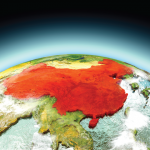LONDON (Reuters)—The Chinese market is getting tougher for Western pharmaceutical companies as Beijing bears down on a rising healthcare bill and prices come under pressure.
The country, which has overtaken Japan as the world’s second largest market for prescription medicines after the U.S., has drawn major investment from global drugmakers in recent years — but growth rates are now slowing markedly.
With the exception of AstraZeneca, none of the big pharma companies reporting second-quarter results have managed to achieve double-digit percentage Chinese sales growth, according to a recent analysis by Deutsche Bank.
Denmark’s Novo Nordisk, the world’s biggest insulin maker, was the latest to disappoint on Thursday with a 6% slide in Chinese sales.
Novo blamed declining diabetes market growth and increased competition from cheap locally made insulins, as well as stock-building in previous quarters.
Many drug company executives are still bullish about China’s long-term growth prospects, as the government improves access to healthcare, and drug spending is expected to reach as much as $185 billion by 2018, according to independent consultancy IMS Health.
But the short-term picture is proving less rosy, with reforms in the hospital sector impacting prescribing and price pressures increasing for a range of drugs.
Joe Jimenez, chief executive of Novartis, the world’s biggest drugmaker by sales, said increased healthcare coverage had pushed up costs and Beijing was now trying to rein in recent rapid spending growth.
“I think there’s a conscious effort to slow it down a bit,” he said after reporting quarterly results last month. “Then on top of that, you have what’s happening from an economy standpoint in the stated shift towards what they’re calling sustainable economic growth, which is leading to lower overall growth rates.”
Chito Zulueta, Eli Lilly’s head of emerging markets, said there had been a “pretty significant” drop in the market growth in China from a mid-teen percentage rate in the last few years to single-digits.
Pfizer also reported pricing pressures in China, but said the country remained a significant opportunity for future growth.
It all adds up to a bumpy ride for Western companies, many of which already took a hit from a series of bribery probes that led to a fine of nearly $500 million for GlaxoSmithKline last year.
GSK Chief Executive Andrew Witty said his company’s business in China had stabilised since that big reputational hit, although the market backdrop was not easy.
“There is no doubt that we are seeing that the overall marketplace in China slowed quite dramatically over the last year or so,” he said.

